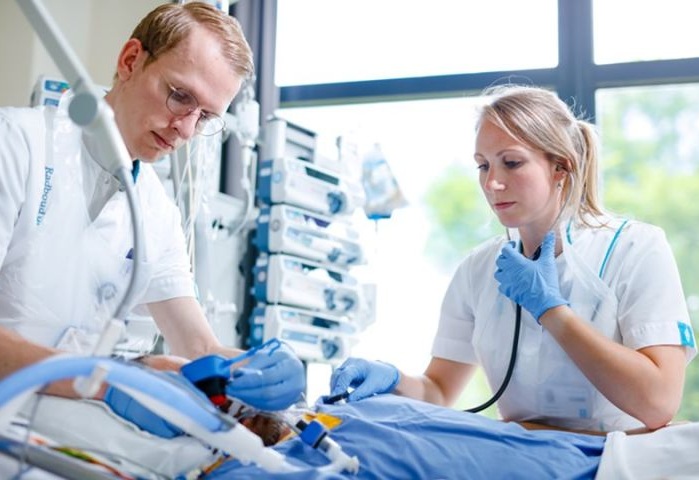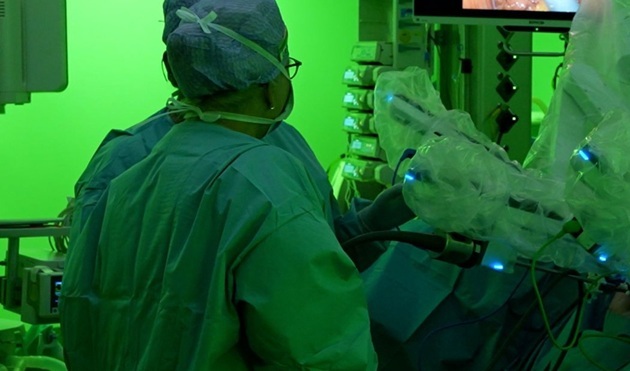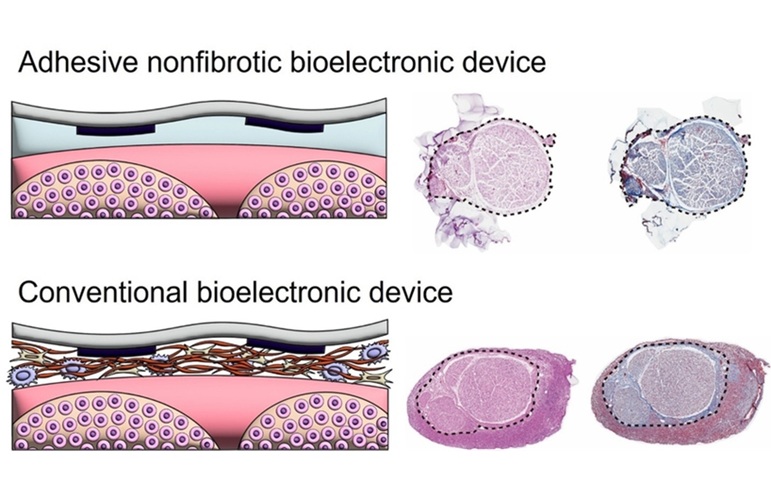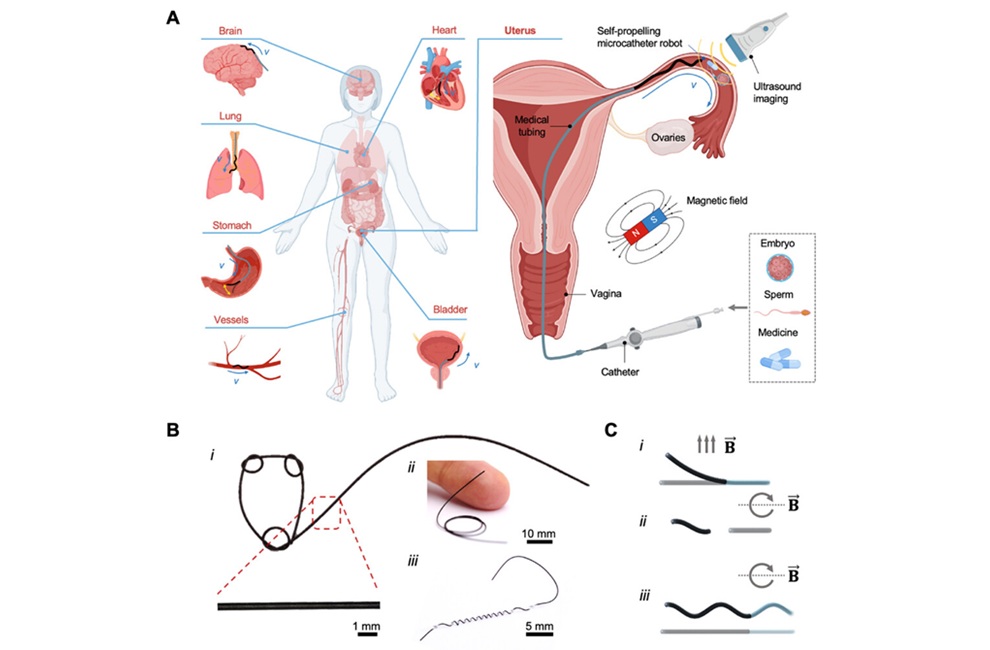Innovative Medical Device Development Center Opens in NY
|
By HospiMedica International staff writers Posted on 11 May 2016 |

Image: Vascular testing model produced on the Stratasys Objet500 Connex3 3D printer (Photo courtesy of the Jacobs Institute).
Three-dimensional (3D) printer manufacturer Stratasys (Rehovot, Israel) and the Jacobs Institute (JI; Buffalo, NY, USA) have created a research and development (R&D) center aimed at using 3D printing to test and develop new medical devices.
The new Center of Excellence (COE) will leverage Stratasys’ 3D printing technology to develop and test new medical devices using printed prototypes and models. The COE will also serve as a referral center for hospitals and medical research organizations that are considering implementing 3D printing labs, and will enrich clinical education and training activities for a variety of audiences. It is also expected to aid hospitals and medical research groups in their own implementation of in-house 3D printing labs, an increasingly common phenomenon.
Stratasys supports the COE by providing advanced 3D printing solutions that feature a combination of vibrant colors and diverse material properties, including different levels of opacity and rigidity. Other partners in the COE will include Kaleida Health (Buffalo, NY, USA), the largest healthcare provider in Western New York, and the State University of New York at Buffalo (USA). Kaleida Health will participate via its vascular institute, while the University at Buffalo will share its Clinical and Translational Research Center (CTRC).
“By partnering with Stratasys, the Jacobs Institute is bringing the leader in 3D printing to Buffalo to work closely with the JI and its partners, Kaleida Health and the University at Buffalo, to accelerate the development of new medical technologies,” said Bill Maggio, CEO of the Jacobs Institute. “Working together, the respective institutions will leverage their strengths to make an impact far greater than they could make individually.”
“This announcement with the Jacobs Institute is an important milestone, marking the first time we are formally partnering with a medical organization to explore the exciting opportunities of 3D printing and healthcare,” said Scott Rader, general manager of medical solutions at Stratasys. “Stratasys brings decades of experience to the Jacobs Institute, a leader in 3D printed models, to push the boundaries of how these models can be used to train the next generation of physicians, and test new devices.”
Related Links:
Stratasys
Jacobs Institute
The new Center of Excellence (COE) will leverage Stratasys’ 3D printing technology to develop and test new medical devices using printed prototypes and models. The COE will also serve as a referral center for hospitals and medical research organizations that are considering implementing 3D printing labs, and will enrich clinical education and training activities for a variety of audiences. It is also expected to aid hospitals and medical research groups in their own implementation of in-house 3D printing labs, an increasingly common phenomenon.
Stratasys supports the COE by providing advanced 3D printing solutions that feature a combination of vibrant colors and diverse material properties, including different levels of opacity and rigidity. Other partners in the COE will include Kaleida Health (Buffalo, NY, USA), the largest healthcare provider in Western New York, and the State University of New York at Buffalo (USA). Kaleida Health will participate via its vascular institute, while the University at Buffalo will share its Clinical and Translational Research Center (CTRC).
“By partnering with Stratasys, the Jacobs Institute is bringing the leader in 3D printing to Buffalo to work closely with the JI and its partners, Kaleida Health and the University at Buffalo, to accelerate the development of new medical technologies,” said Bill Maggio, CEO of the Jacobs Institute. “Working together, the respective institutions will leverage their strengths to make an impact far greater than they could make individually.”
“This announcement with the Jacobs Institute is an important milestone, marking the first time we are formally partnering with a medical organization to explore the exciting opportunities of 3D printing and healthcare,” said Scott Rader, general manager of medical solutions at Stratasys. “Stratasys brings decades of experience to the Jacobs Institute, a leader in 3D printed models, to push the boundaries of how these models can be used to train the next generation of physicians, and test new devices.”
Related Links:
Stratasys
Jacobs Institute
Channels
Critical Care
view channel
Precision Approach Improves Immunotherapy Effectiveness for ICU Patients with Sepsis
Sepsis occurs when the immune system responds abnormally to an infection, often triggering life-threatening organ failure. Despite affecting around 49 million people globally each year and causing approximately... Read more
Soft Robots Could Donate Their Heart to Humans
Heart failure is a growing global health burden, and existing artificial hearts and mechanical pumps often fall short of long-term clinical needs. Many current devices rely on rigid components and complex... Read moreSurgical Techniques
view channel
Minimally Invasive Surgery Proven Safe and Effective for Complex ‘Whipple’ Procedure
Tumors of the pancreatic head often require a highly complex operation known as pancreatoduodenectomy or the Whipple procedure. This surgery involves removing multiple structures and creating several internal... Read more
Catheter-Based Procedures Offer Less Invasive Option for Treatment of Valvular Disease
Valvular heart disease, caused by tight or leaky valves between heart chambers, affects up to 10% of older adults and leads to more than 120,000 deaths globally each year. Traditional open-heart surgery... Read morePatient Care
view channel
Revolutionary Automatic IV-Line Flushing Device to Enhance Infusion Care
More than 80% of in-hospital patients receive intravenous (IV) therapy. Every dose of IV medicine delivered in a small volume (<250 mL) infusion bag should be followed by subsequent flushing to ensure... Read more
VR Training Tool Combats Contamination of Portable Medical Equipment
Healthcare-associated infections (HAIs) impact one in every 31 patients, cause nearly 100,000 deaths each year, and cost USD 28.4 billion in direct medical expenses. Notably, up to 75% of these infections... Read more
Portable Biosensor Platform to Reduce Hospital-Acquired Infections
Approximately 4 million patients in the European Union acquire healthcare-associated infections (HAIs) or nosocomial infections each year, with around 37,000 deaths directly resulting from these infections,... Read moreFirst-Of-Its-Kind Portable Germicidal Light Technology Disinfects High-Touch Clinical Surfaces in Seconds
Reducing healthcare-acquired infections (HAIs) remains a pressing issue within global healthcare systems. In the United States alone, 1.7 million patients contract HAIs annually, leading to approximately... Read moreBusiness
view channel
Philips and Masimo Partner to Advance Patient Monitoring Measurement Technologies
Royal Philips (Amsterdam, Netherlands) and Masimo (Irvine, California, USA) have renewed their multi-year strategic collaboration, combining Philips’ expertise in patient monitoring with Masimo’s noninvasive... Read more
B. Braun Acquires Digital Microsurgery Company True Digital Surgery
The high-end microsurgery market in neurosurgery, spine, and ENT is undergoing a significant transformation. Traditional analog microscopes are giving way to digital exoscopes, which provide improved visualization,... Read more
CMEF 2025 to Promote Holistic and High-Quality Development of Medical and Health Industry
The 92nd China International Medical Equipment Fair (CMEF 2025) Autumn Exhibition is scheduled to be held from September 26 to 29 at the China Import and Export Fair Complex (Canton Fair Complex) in Guangzhou.... Read more













